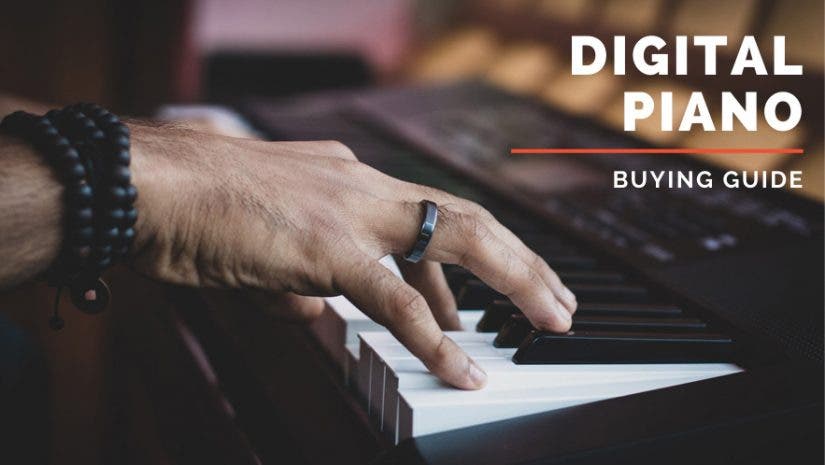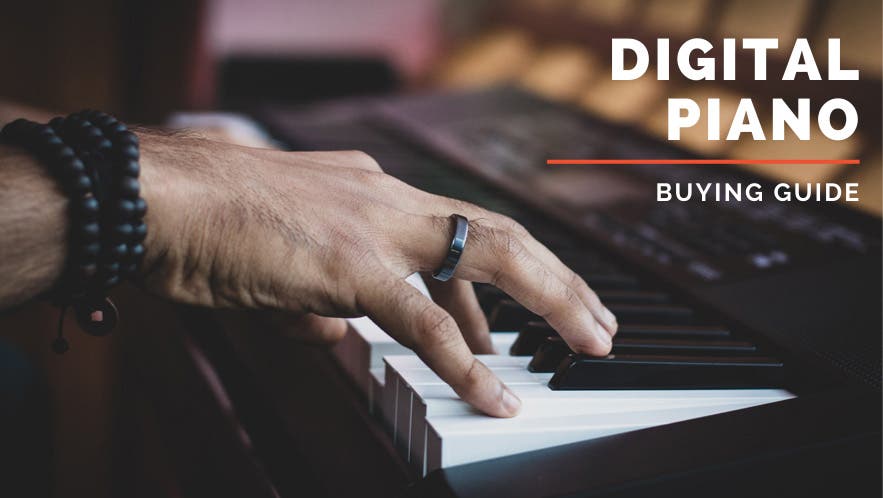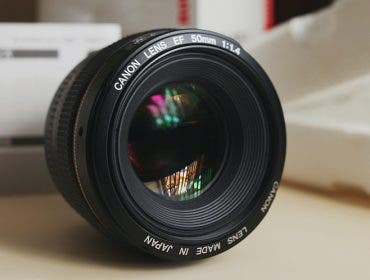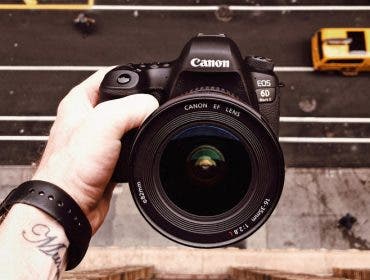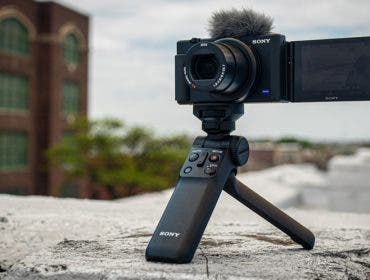You’re about to take the leap and buy a digital piano, but making this decision can be intimidating with so many options on the market. Don’t worry, because our quick run-down of the major features will help you figure out which digital piano is the right one for you. That goes for whether you’re looking for a new model from Yamaha, the latest from Casio, a familiar option from Roland, or something else entirely.
First, it’s crucial to know what you need. Will you be using your piano for live gigs, or for recording at home or in a studio? Will this be a family instrument, or a performance piece? It’s also important to keep your skill level in mind, because some digital pianos come equipped with built-in lessons, while others have more complex features suited to working professionals.
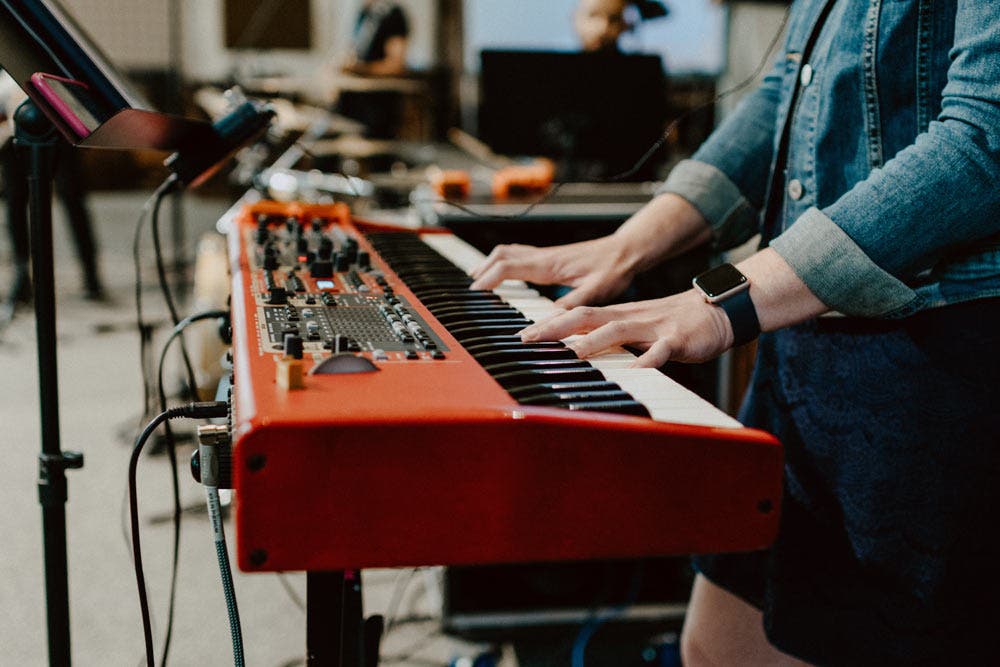
What type of digital piano should you buy?
Digital pianos are a different animal than keyboards. Digital pianos sample acoustic pianos, mimicking their sound. Keyboards don’t, and they instead rely on totally synthesized sounds you can change at will.
Digital pianos can be divided into two main groups: slab and console.
1: Slab pianos
Slab pianos are compact, relatively lightweight, and portable, making them perfect for traveling, gigging, or small spaces. Slab pianos that don’t have internal speakers are considered “stage slabs” because they’re designed to be used with external amplification.
If versatility of use is important, however, internal speakers will allow you to play both at home, in studio, and on location. Slab digital pianos can be bought as stand-alone units, or as kits with the stand, bench, headphones, and pedals included.
Key features:
- Hammer-action keys
- Light and portable
- Versatile
- Affordable
Their best use is anything, from home practice to gigs on the road.
Stage slab key features:
- Hammer-action keys
- Light and portable
- Robust performance features
- No internal speakers
- Hundreds of customizable tones
Their best use is for live performances and studio recordings.
If you’re interested in owning a new slab-style, portable digital piano, we recommend the Casio CDP-S350 and Casio CDP-S150. Both models are well-reviewed and great for newcomers and long-time players alike.
2: Console pianos
These pianos look much more like traditional acoustic pianos with integrated stands and full pedal assemblies. Much heavier than slab pianos, they’re designed for stationary use and vary in style from a simple keyboard on a fixed stand, to an upright style featuring a full cabinet.
Uprights also have more sophisticated hammer action to mimic the playing experience of their acoustic counterparts. If you’re transitioning from an acoustic to a digital piano and don’t need your musical instrument to travel, this may be the perfect choice for you.
Key features:
- Hammer-action keys
- Stationary
- Full functionality with no additional purchases required
- Attractive in-home decor
- Intermediate price point
Their best use is for home playing or for teaching.
Upright console key features:
- Hammer-action hybrid keys for a true-to life playing experience
- Stationary
- Full functionality with no additional purchase required
- More robust sound
- Pricier than slab-style digital pianos
Their best use is for home practice, teaching, or professional performance.
If a console digital piano sounds right for you, consider checking out both the Casio PX-S3000 and Casio PX-S1000. These sleek, slim models are sure to impress and fit into any playing space.
3: Grand pianos
Similar in features to the console but more opulent in appearance, the grand-style digital piano is several steps up in price. While most of the features, including weighted keys, are the same, the grand piano’s large cabinet can allow for better piano sound and resonance. Plus, they’re breathtakingly beautiful.
Key features:
- Elegant appearance
- Hammer-action hybrid keys
- Stationary
- Heavy
- Pricey
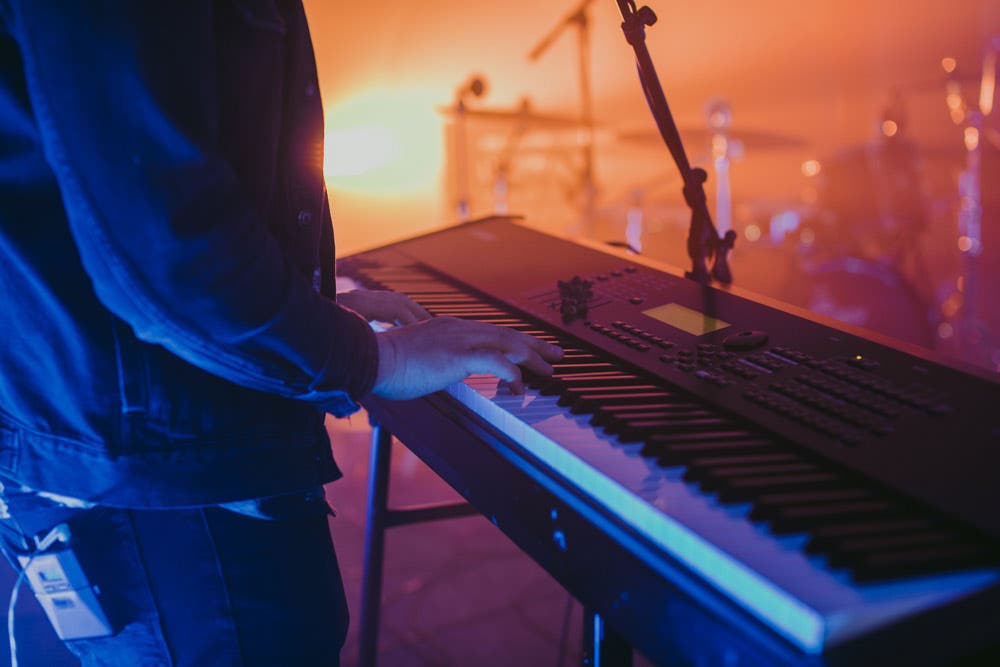
Digital piano features to keep in mind
When you’re shopping for a digital piano, it’s important to understand and note the following features as you browse:
- Weighted keys: These mimic the feeling of string thickness on an acoustic guitar.
- Polyphony: This indicates how many individual tones the piano can create at one time. The higher the number, the more complex sounds the piano can create.
- Velocity sensitivity: This is how the keyboard responds to differing pressure to mimic attack and volume.
- Voices: This indicates how many different piano sounds are available.
These additional features will likely be more important for the seasoned musician, but they’re still good features to recognize for those who want to make a long-term investment in a musical instrument that will grow with them. Whether you’re a beginner or a seasoned professional, there is a digital piano out there with all the features you need.
As for the brands to consider, Adorama carries some of the best digital pianos from familiar names like Yamaha, Casio, Roland, Kawai, and Korg, among others. Here are some of our top picks:
Yamaha P-125a 88-Note Digital Piano with Weighted GHS Action
This digital piano is heavier in the low keys and lighter in the high keys, just like an acoustic piano, to provide an authentic feel. Its Pure CF Sound Engine mimics the tone of the acclaimed Yamaha 9′ CFIIIS concert grand piano for remarkably dynamic and expressive playing with every note.
Casio CDP-S350 88-Key Compact Digital Piano Keyboard
This slim 88-key digital piano has been designed to deliver the accurate sounds and feels of a piano. Casio’s 700 brilliant tones also expand your entire musical ability.
Yamaha P-125 88-Note Digital Piano with Weighted GHS Action
Built to be compact and portable, this 88-note digital piano from Yamaha is packed with powerful features, including touch response, and the impressive sound of the Yamaha CFIIIS 9′ concert grand piano.
Korg B2 88-Key Digital Piano
Created as a perfect piano for beginners, the Korg B2 has 12 total sounds across genres, including piano, electric piano, organ, harpsichord, and strings.
It’s compact, easy to fit into small spaces, and loaded with impressive sound. The Roland FP-30 digital piano has 88 notes, includes Bluetooth connectivity, and comes with Roland’s renowned SuperNATURAL Piano sound engine.
Feature photo by Renith R on Unsplash
